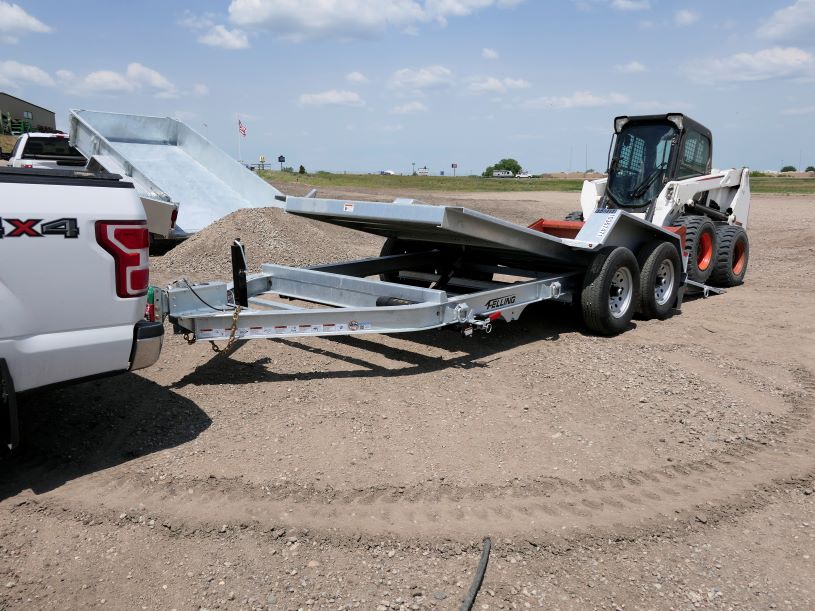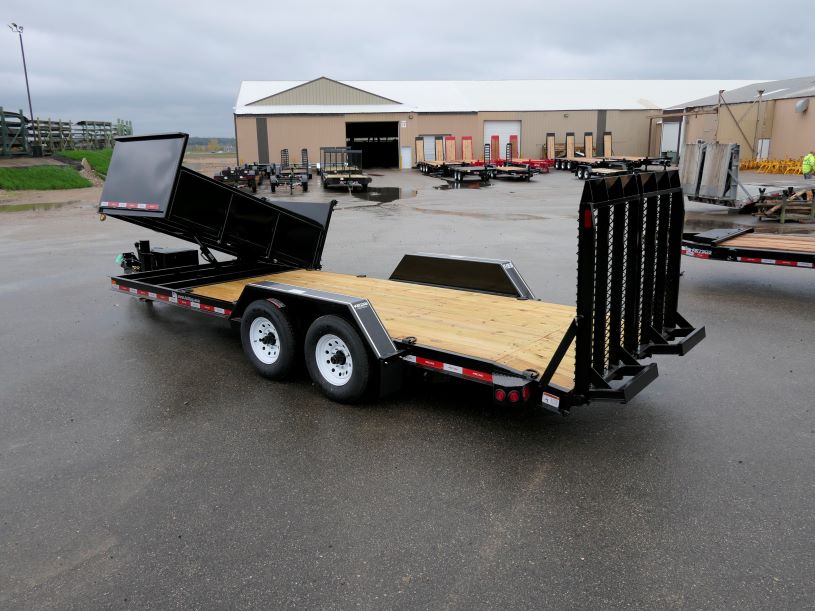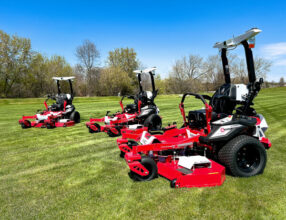Best practices for trailer towing

Towing a trailer involves more than just attaching it to your vehicle and hitting the road – it means having additional attention to detail and prioritizing safety first. To ensure a smooth and safe towing experience, follow these key practices:
Understand your vehicle’s towing capacity
The first step to towing safely is knowing the towing capacity of your vehicle. This is not just about the weight you’re pulling, but the overall load, including the trailer itself. Exceeding your vehicle’s towing capacity can lead to handling issues, an increased strain on your vehicle, and potentially dangerous situations on the road. Review your vehicle’s owner’s manual before securing your load and always stay within the recommended limits.
Secure your hitch connection
Once you have verified that your load will not exceed your towing limit, you must make a secure hitch connection. Your hitch should not only match your vehicle’s towing capacity, but should also be appropriate for the type of trailer you’re using. Verify that the hitch is correctly installed, and the locking mechanism is engaged. Use safety chains crossed under the trailer tongue as a backup in case the hitch fails, preventing detachment from your vehicle.
Balance your load
Always distribute the weight of your load evenly across the trailer to allow for stable towing. Place heavier loads toward the front (near the hitch) to prevent the trailer from swaying. A balanced load will make towing safer and easier on your vehicle. Unbalanced loads can lead to trailer sway, reduced maneuverability and an increased risk of accidents.

Complete pre-trip inspection
Before you start towing, always complete a thorough pre-trip inspection. Check the tire pressures on both your vehicle and trailer — they should be inflated to the manufacturer’s recommended levels. Inspect the lights, brake system and the hitch setup to confirm everything is working properly and securely attached. Also, check that your load is fully secured to prevent items from falling off your trailer. A pre-trip inspection can help identify any potential issues before they become hazards on the road.
Adapt to the weather
Weather conditions may affect your towing potential. Rain, snow, and wind not only reduce visibility but also impact your vehicle’s traction and stability. In poor weather conditions, reduce your speed, increase your following distance, and be prepared for longer stopping distances. If you can, wait out the weather to avoid towing in severe conditions. However, if you must tow, take additional precautions to ensure the safety of yourself and those around you.
Be prepared before you tow
Towing a trailer safely requires knowledge, preparation and an attention to detail. By understanding your vehicle’s towing capacity, ensuring a secure hitch connection, balancing your load correctly, completing a thorough pre-trip inspection, and adapting to weather conditions, you can significantly reduce the risks associated with towing. Safety first is not just a saying — it’s the most important practice in ensuring a successful and secure towing experience.
Article and photos provided by Felling Trailers, a family owned and operated full line trailer manufacturer located in central Minnesota. Felling Trailers’ current capabilities allow them to provide a high-quality product that is distributed throughout North America and internationally. For more information, visit www.felling.com.



